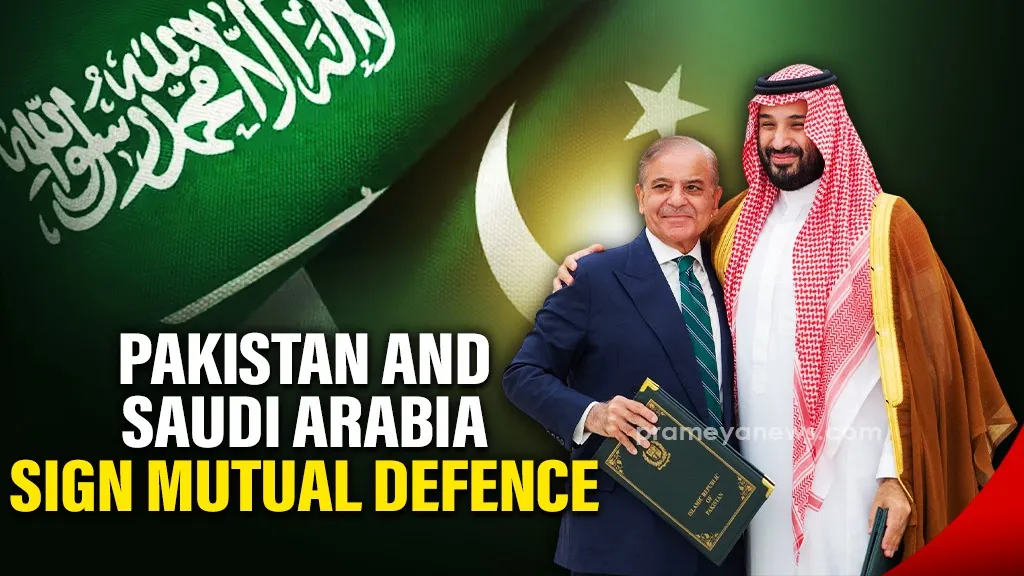

Pakistan and Saudi Arabia Sign Landmark Mutual Defense Pact, Putting India on High Alert
In a move that fundamentally reshapes the geopolitical landscape of the Middle East and South Asia, Pakistan and Saudi Arabia have signed a "Strategic Mutual Defence Agreement," formalizing a powerful alliance under which an attack on either nation will be considered an attack on both. The pact, signed during a state visit to Riyadh by Pakistani Prime Minister Shehbaz Sharif, elevates a long-standing but informal partnership into a binding military commitment and is being closely monitored by India, which has vowed to take all necessary steps to safeguard its national interests.
The 'One-for-All' Clause and Nuclear Overtones
The cornerstone of the agreement is its mutual defense clause, a clear declaration of joint deterrence that transforms the strategic calculus for any potential adversary. The official statement from the Saudi Press Agency confirmed that the agreement aims to "strengthen joint deterrence against any aggression," a clear signal to the rest of the region.
Raising the stakes even further are unconfirmed but deeply significant media reports suggesting that the pact could grant Saudi Arabia access to Pakistan's nuclear arsenal. As the only nuclear-armed Islamic nation, Pakistan's willingness to potentially extend its nuclear umbrella is a development with profound and far-reaching implications for regional and global stability. While officials have not publicly confirmed this aspect, the mere suggestion has sent ripples of concern through international foreign policy circles.
The Geopolitical Context A New Power Bloc?
The timing of the agreement is not a coincidence. It comes on the heels of a recent summit in Doha, attended by 40 Islamic nations, where the idea of a "NATO-like alliance" was reportedly discussed in the wake of Israel's controversial strike on Hamas leaders in Qatar. The Pakistan-Saudi pact can be seen as the first and most powerful concrete step toward creating such a bloc, uniting a major military power with a financial and religious heavyweight. This formalization of their security relationship is a direct response to a perceived need for collective security among Islamic nations in an increasingly volatile world.
India's Cautious but Firm Response
The development has been met with a measured but firm response from New Delhi. The Ministry of External Affairs spokesperson, Randhir Jaiswal, acknowledged that the government was aware that such a pact had been under consideration but stated that India is now "closely monitoring" the situation. "We will study the implications of this development for our national security," Jaiswal said, adding that the government "remains committed to protecting India’s national interests and ensuring comprehensive national security in all domains."
This new alliance takes on an even greater significance given the current state of deeply strained relations between India and Pakistan, particularly following the Pahalgam terror attack and the subsequent "Operation Sindoor." The formalization of a defense pact between Pakistan and a key regional power like Saudi Arabia introduces a new and challenging variable into an already tense security environment, forcing India to reassess its strategic posture in the region.